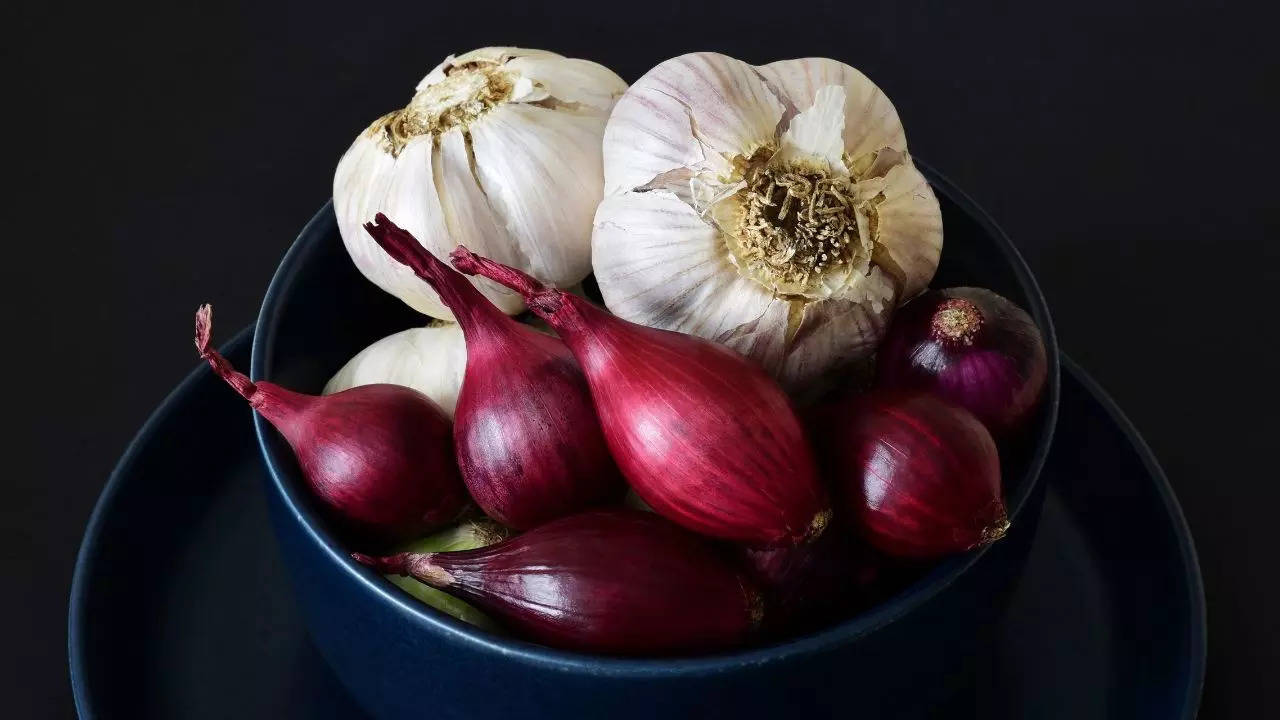
With fasting and puja, Navratri is widely celebrated across the country. It is a ritual to follow a sattvic diet during this 10-days festival to seek the blessing of the goddess. Besides the non-veg, devotees also exclude onion and garlic in the Navratri meals. While these ingredients are known for their flavour and health benefits, they are avoided during this sacred period due to their tamasic nature in Ayurveda. Here are some significant benefits of avoiding onions and garlic in the sattvik diet during Navratri.
Improves Digestion
While onions and garlic are nutritious, they can be hard to digest for certain individuals, specially those with sensitive digestive systems. They contain fructans, a type of carbohydrate that can lead to bloating and discomfort in certain individuals. During Navratri, when many people fast or eat lighter meals, avoiding these ingredients can promote smoother digestion and prevent gastrointestinal discomfort.
Balanced Body Temperature
Ayurveda classifies onions and garlic as heated foods, meaning they increase the body’s internal heat and elevate the Pitta dosha—a body energy related with heat and metabolism. Fasting during Navratri often involves eating cooler, lighter meals to maintain a balanced body temperature. By avoiding these heat-inducing ingredients, individuals may experience fewer heat-related symptoms such as skin irritations, inflammation and discomfort.
Mental Health Benefits
Ayurvedic teachings suggest that onions and garlic, classified as rajasic foods, can influence mental states by increasing restlessness and distraction. Navratri is not only a time of physical fasting but also spiritual reflection and mental focus. Eliminating these foods from the diet can support practitioners in maintaining a calm and clear mind, enhancing their ability to concentrate on spiritual practices and devotion.
Helps Maintain Ritual Purity
In many Hindu traditions, maintaining purity is a vital aspect of religious observances, including Navratri. Onions and garlic are considered impure due to their strong odor and tamasic qualities. By avoiding these foods, devotees believe they can achieve a higher level of spiritual purity, which is essential for worship and performing religious ceremonies.
Balances Emotions
Onion and garlic are known to trigger emotional fluctuations due to their Rajasic properties, which can increase desires and agitation. Removing these foods helps to maintain emotional balance and composure, which is in harmony with the peaceful and introspective nature of Navratri.
Supports Better Overall Health
While garlic is widely recognised for its medicinal benefits, its strong antibacterial properties can disrupt the balance of gut flora if consumed excessively. Maintaining a healthy gut microbiome is essential for immune system support and overall health. During Navratri, avoiding garlic can help promote better gut health, allowing beneficial bacteria to flourish and reducing the risk of digestive disturbances.
